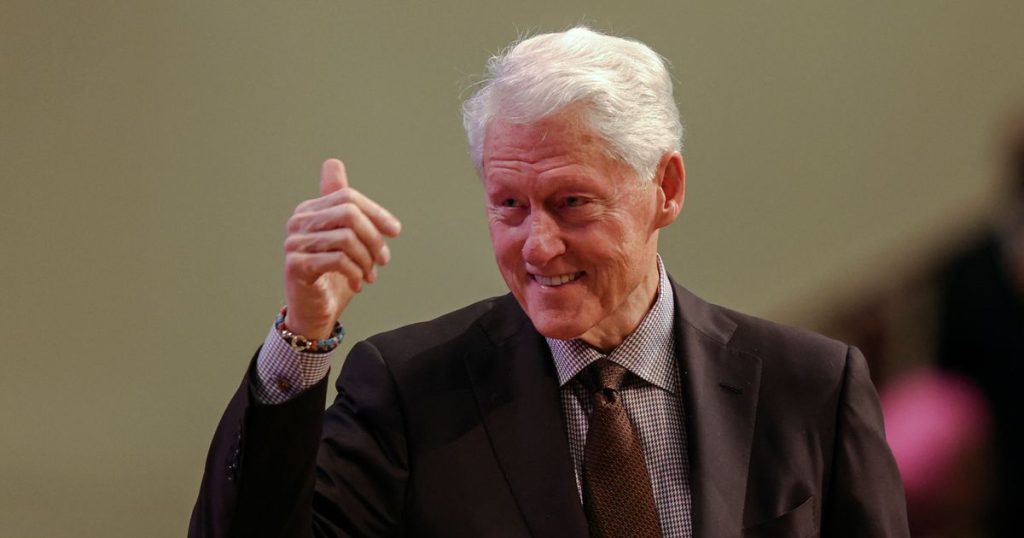Former President Bill Clinton criticized Rep. Marjorie Taylor Greene and her conspiracy theories about the weather while campaigning for Vice President Kamala Harris in Georgia. Clinton accused Greene of spreading lies and fabrications that help Donald Trump. Greene had previously made false claims about the federal response to Hurricane Helene, suggesting that Democrats could have manufactured the storm to target Republican regions. Clinton mocked these claims, stating that if he actually had the power to change the weather, he would have pursued a different career.
Clinton’s remarks came during his support for Harris, the Democratic nominee, as they campaign in the battleground state of Georgia. The former President’s comments drew laughter from the audience and highlighted the absurdity of Greene’s conspiracy theories. Greene’s statements are just one example of the misinformation and false claims that have become prevalent in politics, particularly during the final weeks of a heated election cycle. Clinton’s response serves as a reminder of the importance of truth and integrity in politics, as well as the dangers of spreading baseless conspiracy theories.
The incident involving Greene and her wild claims about weather manipulation underscores the need for responsible and honest leadership in government. The spread of misinformation and conspiracy theories not only undermines public trust in elected officials but also poses a threat to the democratic process itself. By calling out Greene’s falsehoods and emphasizing the importance of truthfulness in politics, Clinton sought to uphold the values of transparency and accountability in governance. As the election approaches, it is crucial for voters to be discerning and critical of the information they encounter, in order to make informed decisions at the ballot box.
Clinton’s support for Harris in Georgia also highlights the significance of the state in the upcoming election. As a battleground state, Georgia has emerged as a key battleground in the race for the White House, with both parties mobilizing their supporters to secure victory. By campaigning for Harris in Georgia, Clinton and other prominent surrogates are aiming to sway undecided voters and energize the Democratic base. The outcome of the election in Georgia could have far-reaching implications for the future direction of the country, making it a critical battleground for both parties.
The current political climate, marked by polarization and division, underscores the importance of strong and principled leadership. By taking a stand against misinformation and falsehoods, Clinton and other leaders are demonstrating their commitment to truth and integrity in public service. In a time when trust in government institutions is at a low point, it is essential for elected officials to uphold the highest standards of honesty and accountability. As the election draws near, voters have a crucial role to play in holding their representatives accountable and ensuring that their voices are heard in shaping the future of the nation.
In his remarks in Georgia, Clinton’s criticism of Greene’s conspiracy theories serves as a reminder of the dangers of misinformation and the importance of standing up for truth and integrity in politics. By highlighting the absurdity of Greene’s claims and emphasizing the need for responsible leadership, Clinton is sending a powerful message to voters about the values that should guide our political discourse. As the election approaches, it is essential for all Americans to remain vigilant against falsehoods and to demand honesty and transparency from their elected officials. Ultimately, the future of our democracy depends on our collective commitment to upholding these core principles.


